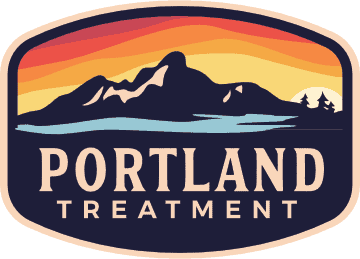Addiction Treatment for Veterans in Maine
Comprehensive Drug & Alcohol Rehab for Veterans
At Portland Treatment, we specialize in providing comprehensive, research-based veterans addiction treatment & other services tailored to their unique needs. Understanding the significant challenges veterans face with substance use disorders and co-occurring mental health issues such as PTSD, depression, and anxiety, we offer structured inpatient-level care combined with residential-style supportive housing. This approach ensures veterans receive continuous, consistent, and personalized treatment aimed at sustainable recovery.
Understanding the Unique Need for Veterans Addiction Treatment
Veterans face unique and heightened risks for substance use disorders due to their exposure to traumatic events, physical injuries, chronic pain, and significant psychological stress experienced during military service. According to research by the U.S. Department of Veterans Affairs, nearly 20% of veterans who served in Operations Iraqi Freedom (OIF) and Enduring Freedom (OEF) struggle with substance use disorders, often co-occurring with PTSD or other psychological issues [1].
The Importance of Specialized Addiction Treatment for Veterans
Standard addiction treatment programs might not sufficiently address the depth of trauma and the specific mental health challenges veterans experience. Specialized veteran-focused programs, like those offered by Portland Treatment, provide trauma-informed care that is sensitive to military culture and experiences. Research shows that veteran-specific treatments significantly enhance recovery outcomes, reduce relapse rates, and improve overall quality of life post-treatment [2].
Inpatient Rehab for Veterans in Maine
At Portland Treatment, we provide a residential-style program that mirrors inpatient treatment intensity while offering off site recovery housing arrangements with 24/7 staff that foster real-world recovery experiences. Our comprehensive programs include:
Partial Hospitalization Programs (PHP): Intensive daily structured care with comprehensive clinical support and therapeutic interventions.
Intensive Outpatient Programs (IOP): Flexible treatment schedules accommodating personal, family, and employment responsibilities while maintaining rigorous clinical support.
Supportive Recovery Housing: Residential-style housing with peer support, supervision, and accountability to reinforce treatment gains and ensure safe transitions back into daily life.
Dual Diagnosis Care for Veterans
Co-occurring disorders are common among veterans, particularly PTSD, depression, and anxiety alongside substance abuse. Our dual diagnosis treatment integrates addiction treatment with specialized mental health therapies, promoting comprehensive healing. Research indicates that integrated dual diagnosis treatment significantly improves outcomes, reduces relapse rates, and provides veterans with skills to manage their symptoms effectively [3].
Evidence-Based Therapies in Our Veterans Rehab Program
Portland Treatment employs evidence-based, trauma-informed therapies specifically beneficial for veterans:
Cognitive Behavioral Therapy (CBT): Proven effective for treating PTSD, anxiety, depression, and substance use disorders by addressing maladaptive thinking patterns [4].
Dialectical Behavior Therapy (DBT): Teaches skills in emotional regulation, distress tolerance, and interpersonal effectiveness, vital for veterans managing intense emotional experiences [5].
Eye Movement Desensitization and Reprocessing (EMDR): Highly effective in reducing PTSD symptoms and trauma-related distress commonly experienced by veterans [6].
Motivational Interviewing (MI): Enhances veterans’ intrinsic motivation for change and strengthens commitment to sobriety and ongoing mental health management.
Medication-Assisted Treatment (MAT) for Veterans
For veterans struggling with opioid or alcohol dependence, Medication-Assisted Treatment (MAT) is available. MAT combines FDA-approved medications with behavioral therapies to manage withdrawal symptoms, reduce cravings, and support sustained recovery. According to the Substance Abuse and Mental Health Services Administration (SAMHSA), MAT significantly improves long-term recovery outcomes for veterans [7].
Holistic and Complementary Therapies for Veteran’s Needs
Holistic treatment approaches at Portland Treatment foster overall wellness and complement evidence-based therapies, including:
Mindfulness and meditation
Physical fitness and recreational activities
Art and music therapies
Outdoor therapeutic activities
Research supports these holistic methods as highly effective in reducing stress, improving emotional resilience, and enhancing long-term recovery outcomes [8].
Veteran Family and Community Involvement in Veterans Addiction Treatment
The involvement of family and community support networks is crucial for veterans’ successful rehabilitation. Our treatment plans include:
Family therapy sessions
Veteran-specific peer support groups
Educational workshops for families
Community integration resources to maintain long-term recovery
Aftercare and Ongoing Support for Veterans
Sustained recovery requires ongoing support beyond initial treatment. Portland Treatment provides extensive aftercare planning and resources, including:
Continued outpatient counseling
Alumni and peer support programs
Referrals to VA and veteran-specific community resources
Structured sober living environments
Start Your Journey to Lasting Recovery
If you or a loved one is a veteran seeking effective, specialized addiction treatment in Maine, contact Portland Treatment today. Our experienced and compassionate team is committed to helping veterans achieve lasting recovery and improved quality of life.
FAQ
What types of addiction treatment programs are available specifically for veterans?
Veterans have access to specialized inpatient & outpatient programs (PHP/IOP), supportive residential-style housing, dual diagnosis care, and holistic therapies specifically tailored to their unique experiences and needs.
How effective are veterans addiction treatment programs?
Inpatient-level rehab is highly effective, offering veterans structured therapeutic support, continuous care, and specialized trauma-informed treatment for co-occurring disorders like PTSD and depression.
Are there veteran-specific addiction treatment programs available in Maine?
Yes, Portland Treatment provides veteran-specific addiction treatment in Maine, focusing explicitly on the unique needs and experiences of veterans through trauma-informed, comprehensive care.
Can veterans access treatment through their insurance?
Many insurance providers, including TriCare, cover inpatient and structured outpatient treatment programs for veterans. Portland Treatment assists veterans in verifying insurance coverage and coordinating benefits. Portland Treatment is proud to accept VA Benefits, such as OptumServe
What key features should veterans look for in a substance abuse treatment program?
Veterans should seek programs that provide comprehensive, trauma-informed care, dual diagnosis treatment, evidence-based therapies (CBT, DBT, EMDR), family involvement, peer support, and extensive aftercare planning.
Sources:
U.S. Department of Veterans Affairs. (2023). Substance use disorders in veterans. Retrieved from https://www.mentalhealth.va.gov/substance-use/index.asp
Teeters, J. B., Lancaster, C. L., Brown, D. G., & Back, S. E. (2017). Substance use disorders in military veterans: Prevalence and treatment challenges. Substance Abuse and Rehabilitation, 8, 69-77. https://doi.org/10.2147/SAR.S116720
SAMHSA. (2023). Integrated treatment for co-occurring disorders. Substance Abuse and Mental Health Services Administration. Retrieved from https://www.samhsa.gov/co-occurring-disorders
American Psychological Association. (2017). Clinical practice guideline for the treatment of PTSD. Retrieved from https://www.apa.org/ptsd-guideline
Department of Veterans Affairs, Veterans Health Administration. (2020). Management of substance use disorders (SUD). VA/DoD Clinical Practice Guidelines. Retrieved from https://www.healthquality.va.gov/guidelines/MH/sud/
Shapiro, F. (2018). Eye Movement Desensitization and Reprocessing (EMDR) therapy (3rd ed.). Guilford Press.
SAMHSA. (2023). Medication-Assisted Treatment (MAT). Substance Abuse and Mental Health Services Administration. Retrieved from https://www.samhsa.gov/medication-assisted-treatment
National Center for Complementary and Integrative Health. (2022). Complementary, alternative, or integrative health: What’s in a name? National Institutes of Health. Retrieved from https://www.nccih.nih.gov/health/complementary-alternative-or-integrative-health-whats-in-a-name

